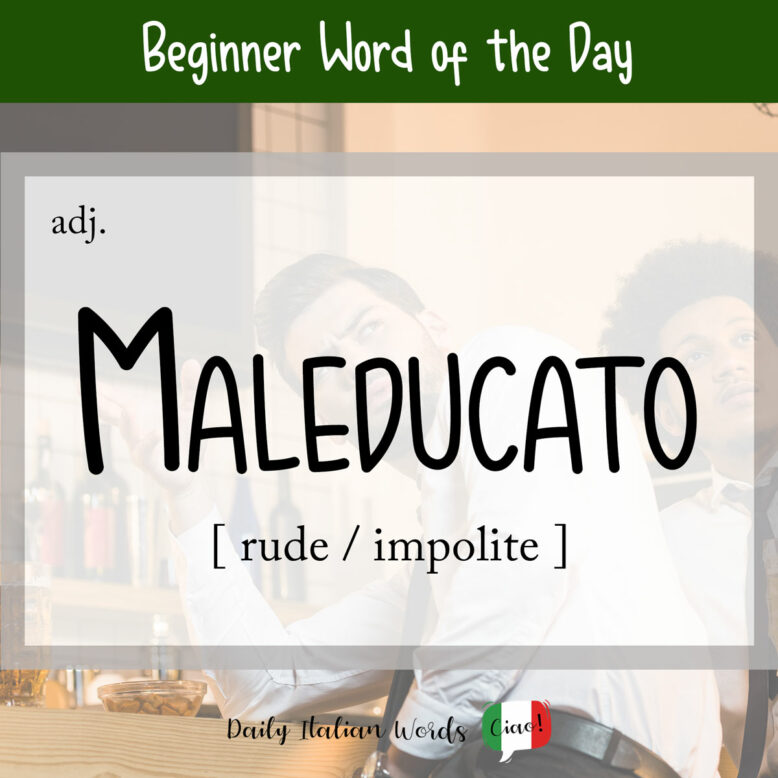There is a great Italian word for someone who eats with his mouth open, talks back to his parents, and disturbs other people by making too much noise, and that is maleducato.

Maleducato translates into English as rude, impolite or ill-mannered and may refer to a person’s speech or behaviour.
A volte quel ragazzo è proprio maleducato con i suoi genitori.
Sometimes that boy is really rude to his parents.
Because maleducato is an adjective, the ending changes to correspond with the gender and number of the subject.
- maleducato = masculine, singular
- maleducata = feminine, singular
- maleducati = masculine, plural
- maleducate = feminine, plural
The opposite of maleducato is simply educato or beneducato, with the latter combining the words bene (good) and educato.
Maleducazione translates as rudeness or bad manners, while maleducatamente means rudely. Because this word is a bit of a mouthful even for Italians, you’ll often hear people say in modo maleducato (in a rude way) instead.
Si è comportato con me in modo maleducato.
He acted rudely towards me.
Maleducato can also function as a noun to refer to an ill-mannered individual.
Quella ragazza è una gran maleducata!
That girl is extremely rude!

Below are some additional adjectives that can translate as rude in Italian:
- scortese = rude, unkind, discourteous
- sgarbato = rude, impolite, ill-mannered
- volgare = rude, vulgar, gross
- osceno = rude, obscene, indecent
- grezzo = rough, unrefined
Each country has its own rules of conduct and proper etiquette, some of which may leave visiting foreigners feeling rather perplexed. While Italy may not be as etiquette-bound as other countries in the world, there are some specific behaviours that should be avoided if you don’t want to make a brutta figura (bad impression). These include:
risucchiare linguine e spaghetti
sucking in linguini or spaghetti noodles
indossare vestiti striminziti quando si visita una chiesa
wearing skimpy clothing when visiting a church
chiedere un sacchetto per gli avanzi
asking for a doggie bag
prendere in mano cibo al supermercato senza indossare guanti di plastica
picking up food at the grocery store without wearing plastic gloves
usare un linguaggio informale in situazioni formali
using informal language in formal situations
Heather Broster is a graduate with honours in linguistics from the University of Western Ontario. She is an aspiring polyglot, proficient in English and Italian, as well as Japanese, Welsh, and French to varying degrees of fluency. Originally from Toronto, Heather has resided in various countries, notably Italy for a period of six years. Her primary focus lies in the fields of language acquisition, education, and bilingual instruction.


